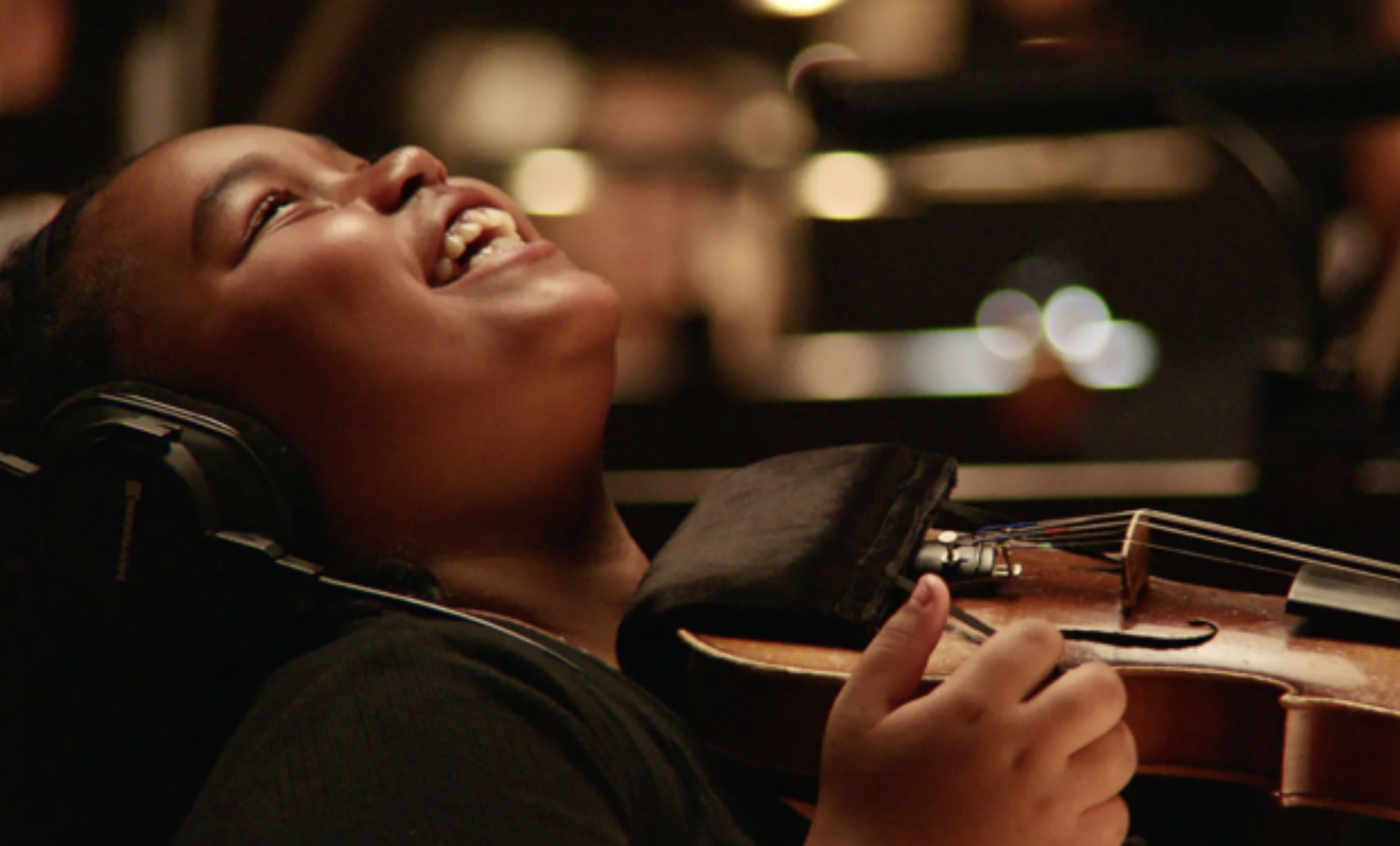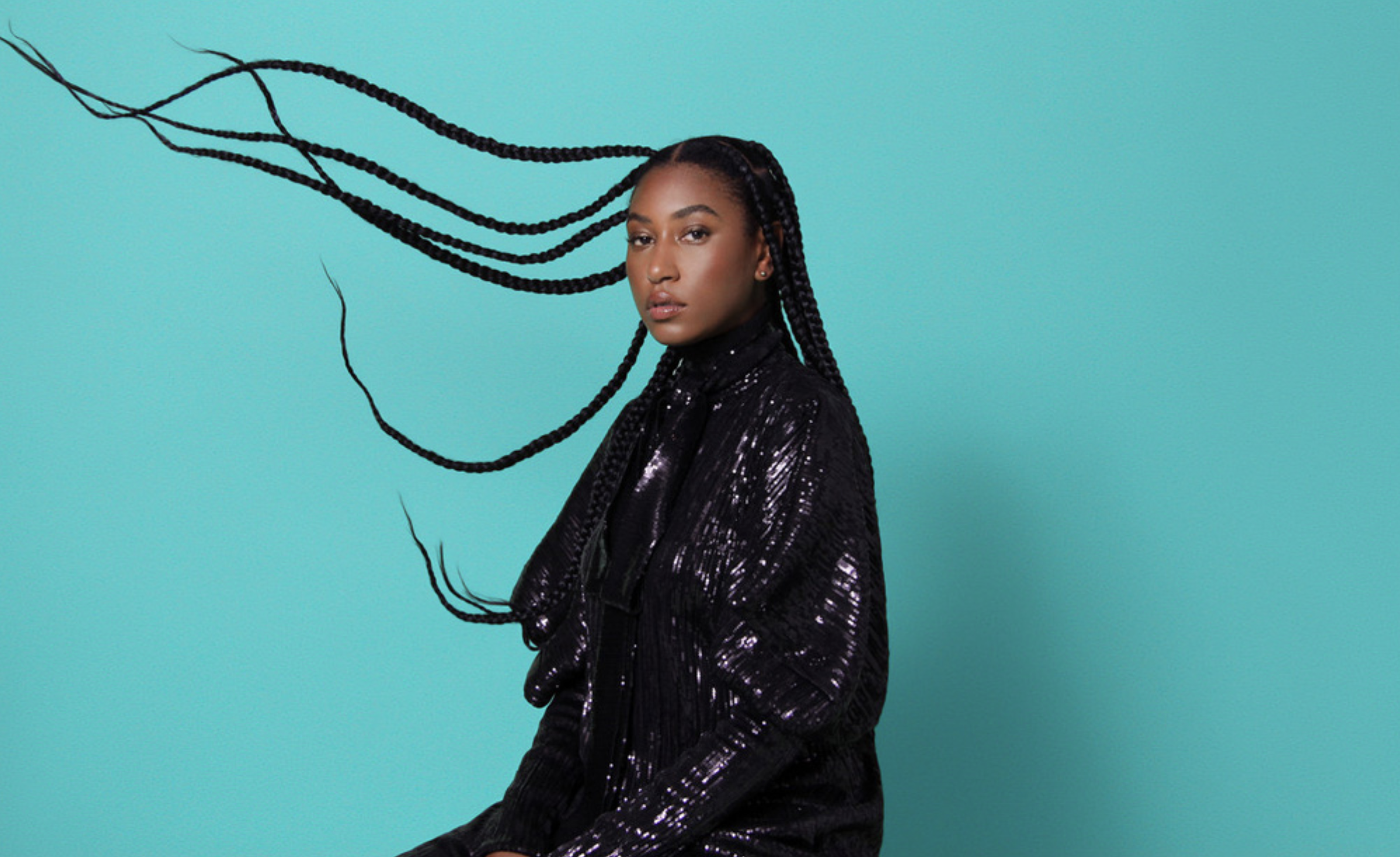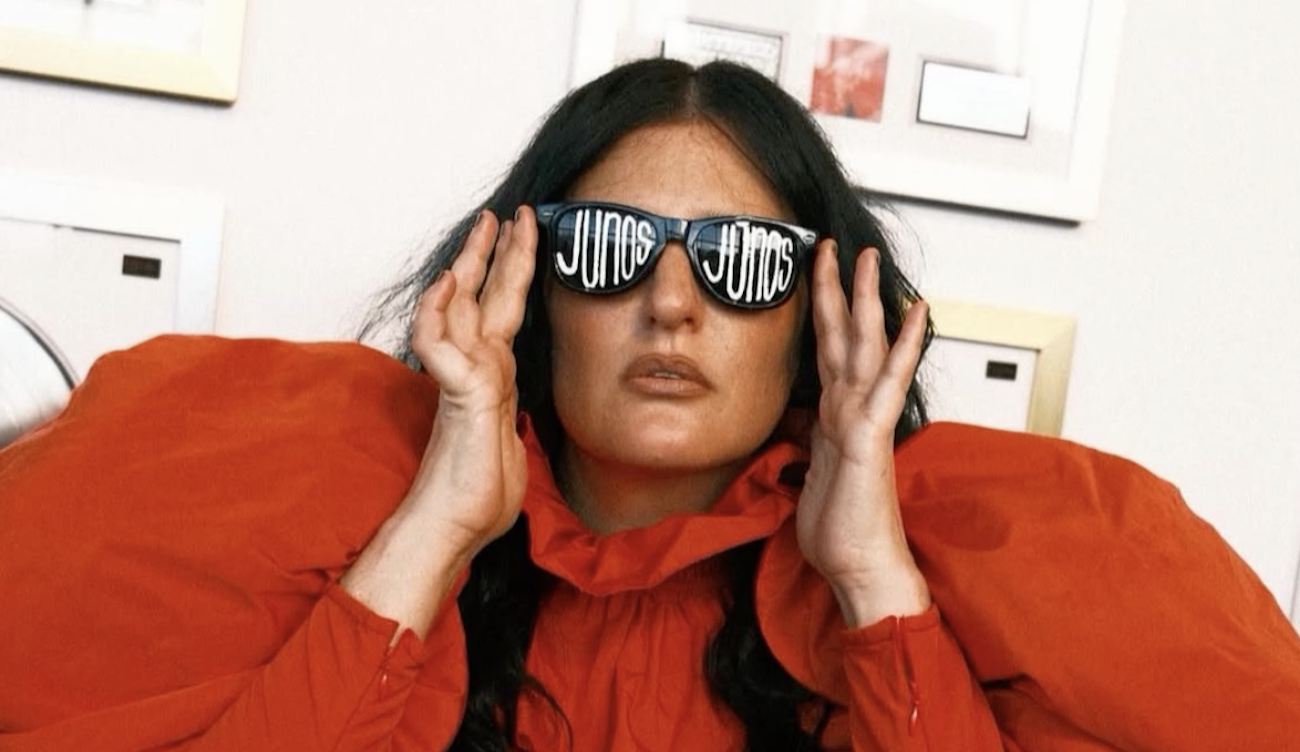GRAMMY AWARD WINNER / BEST ALTERNATIVE JAZZ ALBUM
The Real Omnichord Book by Meshell Ndegeocello

- PLAYLISTS: YouTube and Spotify
- ARCHIVES: Kurated No. 109: The Sprawling Creativity of Meshell Ndegeocello
- REVIEWS: In Pitchfork, The Guardian, Exclaim!, NPR Music.
- VIDEO INTERVIEW: Blue Note President Don Was and Ndegeocello (12:35 Mins)
- ACCEPTING HER GRAMMY: (1.29 mins)

Meshell Ndegeocello – image from her website
IT’S HER OWN JAZZ
“Energized by grace and understanding”
I like that I like this record! It’s a wide-ranging, 18-song, jazz-influenced collection from versatile veteran musician Meshell Ndegeocello. I often lose my way in jazz. But this set is different and that’s a happy surprise.
On The Real Omnichord Book Ndegeocello has assembled an array of expert players who roam and improvise easily in free jazz, funky and rhythmic percussion play, sweet acoustic guitar lines and warm piano sounds. She and her collaborators combine on languid, gently chanting and melodic vocals to offer calm and contrast to the spacier and upbeat numbers. An off-the-studio-floor organic timbre keeps the whole affair well-grounded and paced.
Perhaps it’s the variety of genres – a little neo-soul, edgy jazz, Afrobeat and funk, sensual ballads – that make the album so accessible. The collection won the inaugural Grammy Award for Best Alternative Jazz Album two weeks ago.
The jazz-oriented recording is a departure for Ndegeocello who now has recorded 13 solo albums. She’s been a coveted live and session player with acts including the Rolling Stones, Madonna, Alanis Morrisette, John Mellencamp, The Blind Boys of Alabama, Tony Allen, David Bowie, Billy Preston and Chaka Khan. The change in musical direction compelled her to sign with famous jazz label Blue Note under its president, noted producer and musician Don Was. You can watch a 12-minute interview between him and Ndgeocello here.
About the album title
During the pandemic Ndegeocello was busy scoring music for three TV series. She used an inexpensive, electronic – mostly plastic – Omnichord to unwind and get away from composing on the computer. The device includes a drum machine with rhythm and tempo controls and a limited number of chords. Four of the titles on the album were written on it.

An Omnichord
A “real book” is a simple collection of melody, chords and lyrics that give musicians rudimentary information on how to play a song. Ndegeocello’s saxophone-playing father gave her a real book when she was 16 so she could play along at a last-minute gig with his band when the bass player couldn’t make it.

What the reviewers are saying
Besides its GRAMMY win, The Omnichord Real Book has won deserved praise from critics. Here are a few excerpts:
PITCHFORK / Matthew Ismael Ruiz
“Ndegeocello’s solo albums—her early work, in particular—were often sexually and politically charged. She explored and asserted her own sexuality, and aggressively confronted the status quo and her place in it as a queer Black woman artist. The Omnichord Real Book is no less assertive, yet feels energized by grace and understanding. She processes shared trauma (“Towers”), communes with the spirits (“Vuma”), and embraces the dream of the unknown (“Georgia Ave.”) Having fought those battles many times over, Ndegeocello feels more concerned with the present, her assertions reflecting a new sense of self and the existential melancholy of a 54-year-old artist who finally feels comfortable enough to imagine the privilege of a dignified death.
This energy coalesces on “Virgo,” a nearly nine-minute Afrofuturist suite that serves as the album’s centerpiece. Her synth bass spends much of the first few minutes in conversation with Julius Rodriguez’s electronic organ as she sings of finding peace in pain; as the groove builds, she expands her gaze outward to the stars and deep space. When Brandee Younger’s harp comes floating into the mix, it’s as if they’ve cleared the earth’s atmosphere, free to roam the great expanse.” READ MORE
THE GUARDIAN / Ammar Kalia
“Clattering electronic drum programming gives a modernist swing to tracks such as Georgia Ave and Omnipuss, while Josh Johnson’s synthesised saxophone underpins the keening harmonies of An Invitation. Features from vibraphonist Joel Ross on the balladic Towers and guitarist Jeff Parker on the fast-paced fusion of ASR are meanwhile anchored by Ndegeocello’s punchy bass playing, giving consistency to her genre-hopping palette. At 18 tracks long, certain numbers, such as the guitar-strumming Call the Tune or the ambient Oneelevensixteen, are tantalisingly brief and sketch-like. As a whole, it’s a confident imagining of her infectious future funk sound.”
READ MORE
EXCLAIM! / Antoine-Samuel Maufette Alavo
“From soul, hip hop and afrobeat, all genres are explored on the album; the groovy, almost afropop 8-bit pluckings on “Omnipuss” is the perfect example of how Ndegeocello integrates the omnichord to break free from the rigid forms of jazz standards. That’s not to say Ndegeocello isn’t deeply invested in integrating traditional jazz modes, as the album is full of collaborations with the likes of pianist Jason Moran, harpist Brandee Younger and vibist and labelmate Joel Ross — this is a Blue Note project after all.
READ MORE
NPR MUSIC / Nate Chinen
“Over the 30 years since the release of her landmark debut, Ndegeocello has made truth-telling her business, along with a sound and style fed by many tributaries of Black music. The Omnichord Real Book is a coolly transfixing album — her first in five years, and her first as a leader for Blue Note. On some level it’s the product of a jarring realignment, as Ndegeocello explains in the liner notes: “Everything moved so quickly when my parents died. Changed my view of everything and myself in the blink of an eye.
Still, The Omnichord Real Book is a jazz album only to the extent that you need it to be. Even as she makes space for jazz artists like pianist Jason Moran and harpist Brandee Younger, Ndegeocello fashions this music in a language of her own. Along with her virtuoso electric bass playing, which grounds the music with a slithery gravity, she leans at times on the digital-primitive synth-rhythms of an Omnichord, the handheld, amoeba-shaped electronic instrument first made by Suzuki in the 1980s. Hear how she uses its strum plate to add an 8-bit shimmer to the Afrobeat groove of “Omnipuss,” and you begin to understand how the instrument serves as a shield — a means of embracing jazz without taking on its baggage.”
READ MORE

17 February 2024
PLAYLISTS
On YouTube
https://music.youtube.com/playlist?list=PLG-pRIXeCU7fvJVUbq3xqS5Lo4C_eLBOO





